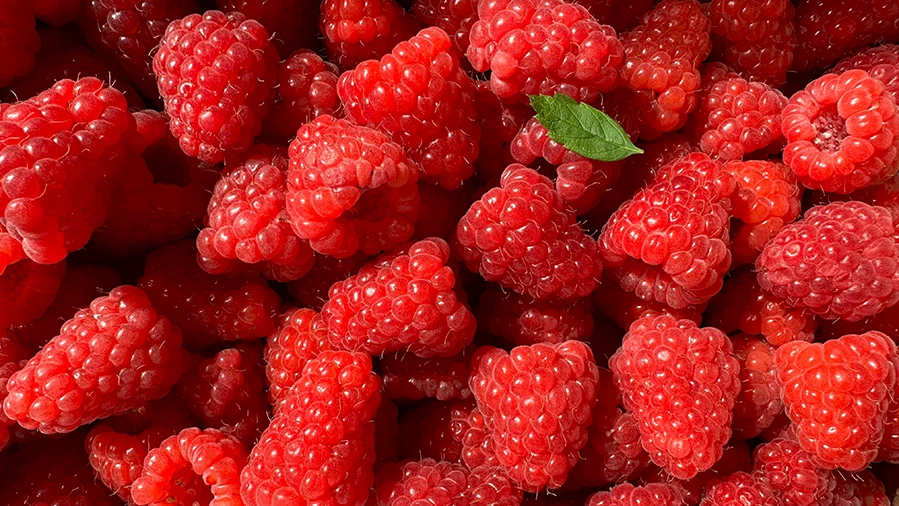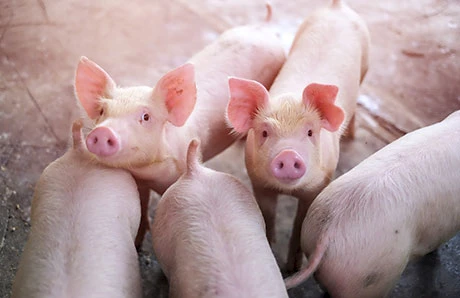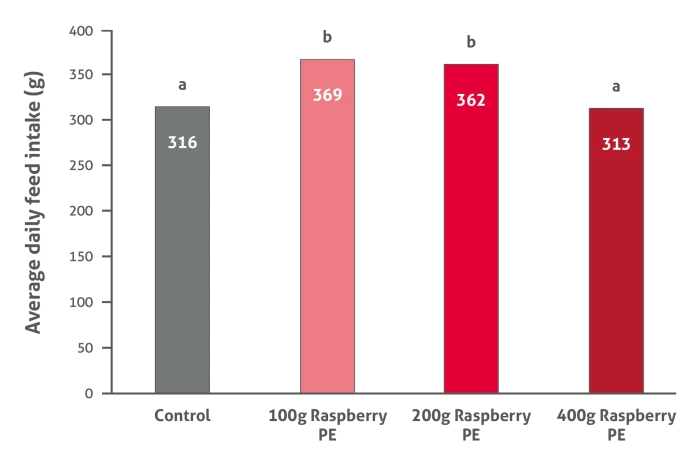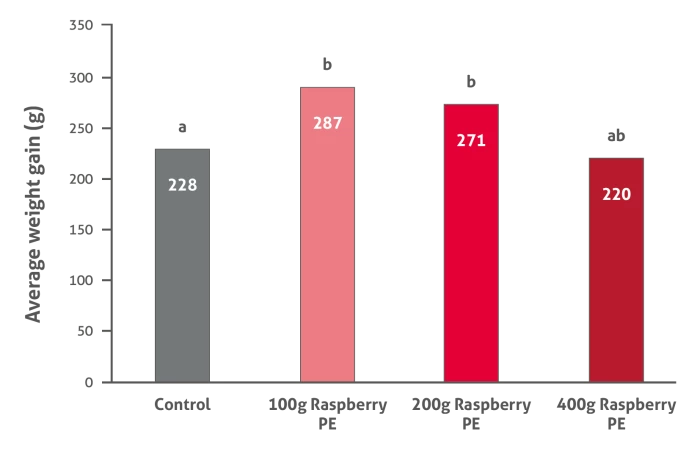A Fruity Solution for Piglet Weaning Success
Raspberry flavour helps improve feed intake in piglets during weaning. This approach reduces stress and supports better growth and overall health.
- Raspberry flavour increases feed palatability for piglets.
- Supports smoother transition from sow's milk to solid feed.
- Reduces weaning-related stress in piglets.
- Enhances average daily feed intake and weight gain.
- Contributes to overall health and well-being during weaning.
Raspberry Flavour Benefits: A Fruity Solution for Piglet Weaning Success
The transition from sow’s milk to solid feed during weaning is a critical period in piglet rearing, essential for optimal growth and development. This phase can be particularly challenging due to the separation from their mothers and littermates, exposure to new environments, and the introduction of unfamiliar feed. These changes can induce stress, reduce feed intake, and increase susceptibility to diseases.
To address these challenges and ensure a smoother transition, it is crucial to maintain consistent feed intake. The use of well-formulated flavours and sweeteners can be a beneficial approach to significantly enhance feed palatability and acceptance, thereby reducing stress and promoting stabilized feed intake.
Taste plays a crucial role in feed selection during weaning by signaling feed composition and nutritional value. The five primary tastes - sweet, salty, bitter, sour, and umami - provide important information: sweet indicates carbohydrates (energy), salty signals essential minerals, umami denotes proteins and amino acids, while bitter and sour can indicate potential toxins. This taste-information feedback loop helps animals associate feed flavours with their health and nutritional effects. Positive taste associations encourage feed intake when nutritional needs are met, whereas negative associations lead to avoidance if the feed causes adverse effects.

The Key to overcome Challenges
Red fruit flavours, with their fruity and appealing taste profile, have shown promising effects on improving feed intake in piglets. This article explores the benefits and underlying mechanisms of incorporating a raspberry flavour into piglets’ diets. Based on recent field study results, it explains how this approach can ease the challenges associated with weaning and improve the health and well-being of piglets during this vulnerable critical developmental stage.
Overcoming Weaning Challenges: Strategies for a smooth Transition
In piglet nutrition, flavour profiles such as milky, creamy, and vanillary are commonly used because they evoke comforting associations with mother’s milk, which helps to stabilize feed intake during the weaning period. Similarly, incorporating red fruit flavours into piglets' diets can be beneficial for enhancing performance and welfare. Many animals, including piglets, have a natural preference for sweet tastes, making red fruit flavours - being both sweet and fruity - inherently appealing. These flavours mimic the taste of ripe, nutrient-rich fruits, which are attractive to piglets and associated with providing essential energy and nutrients.
Considering piglets’ instinctive behavior and nutritional requirements, adding red fruit flavours offers a distinct and appealing option that has the potential to effectively enhance feed intake and support overall well-being. Improving feed acceptance during weaning is crucial, as this period represents a significant dietary transition from a milk-based diet to solid feed. The use of flavours that align with piglets' natural preferences can facilitate this transition and contribute to more stable and efficient feeding patterns.

Use of Phytobiotics' Raspberry Flavour in Piglet Feeding
A field study conducted in Germany investigated the impact of varying concentrations of Phytobiotics’ raspberry flavour on piglet performance during weaning. The study aimed to evaluate how different levels of Bigarol Raspberry P influence piglets’ feed intake and growth.
Study Design
The study involved 256 piglets, each 3 weeks old, with an average body weight of 7.6 kg. These piglets were sourced from a commercial farm and housed at the research facility Haus Düsse in Bad Sassendorf, Germany. The piglets were randomly assigned to four groups, with each group receiving a different dietary treatment: Treatment 1 (Control): no raspberry flavour added; Treatment 2: 100 g of Bigarol Raspberry P per ton of feed; Treatment 3: 200 g of Bigarol Raspberry P per ton of feed, and Treatment 4: 400 g of Bigarol Raspberry P per ton of feed.
Bigarol Raspberry P was incorporated into the feed prior to the pelleting process. Its formulation is specifically designed to be heat-stable, maintaining its flavour profile and effectiveness throughout the feed processing. Each group consisted of 8 piglets per pen, and performance data, including body weight, feed intake, and weight gain, were monitored and recorded weekly over a 5-week trial period.
Promising Results
Piglets fed with Bigarol Raspberry P showed a significant increase in average daily feed intake and average daily gain compared to those which received the control diet. Specifically, treatment 2, which included 100 g of Bigarol Raspberry P per ton of feed, achieved the best enhancements in daily feed intake and average daily gain compared to the control, treatment 3 (200 g Bigarol Raspberry P per ton of feed), and treatment 4 (400 g Bigarol Raspberry P per ton of feed).


Conclusion
The inclusion of Bigarol Raspberry P in piglet diets significantly enhances feed acceptance, with higher concentrations leading to greater improvements in feed intake and growth. This raspberry flavour effectively supports a smooth transition from sow’s milk to solid feed by increasing feed palatability, which is crucial for maintaining optimal growth rates during weaning.
The application of raspberry flavour addresses weaning challenges by boosting feed acceptance, reducing stress, and stimulating appetite, thereby contributing to better growth and overall well-being of piglets. These positive outcomes from field studies underscore the value of incorporating well-formulated flavours into animal nutrition, highlighting their role in improving animal welfare and performance.

About the author
Dr. Anne Winkler: After obtaining a Diploma in Agricultural Science, Anne pursued a Master's degree in Agricultural Science and Environmental Protection at the University of Applied Sciences in Bingen. In 2018, she earned a PhD in Agricultural Science from Martin-Luther-University Halle-Wittenberg. With her strong scientific background, Dr. Anne Winkler now brings her expertise to her role as the Global Product Manager for Flavours & Sweeteners at Phytobiotics.

